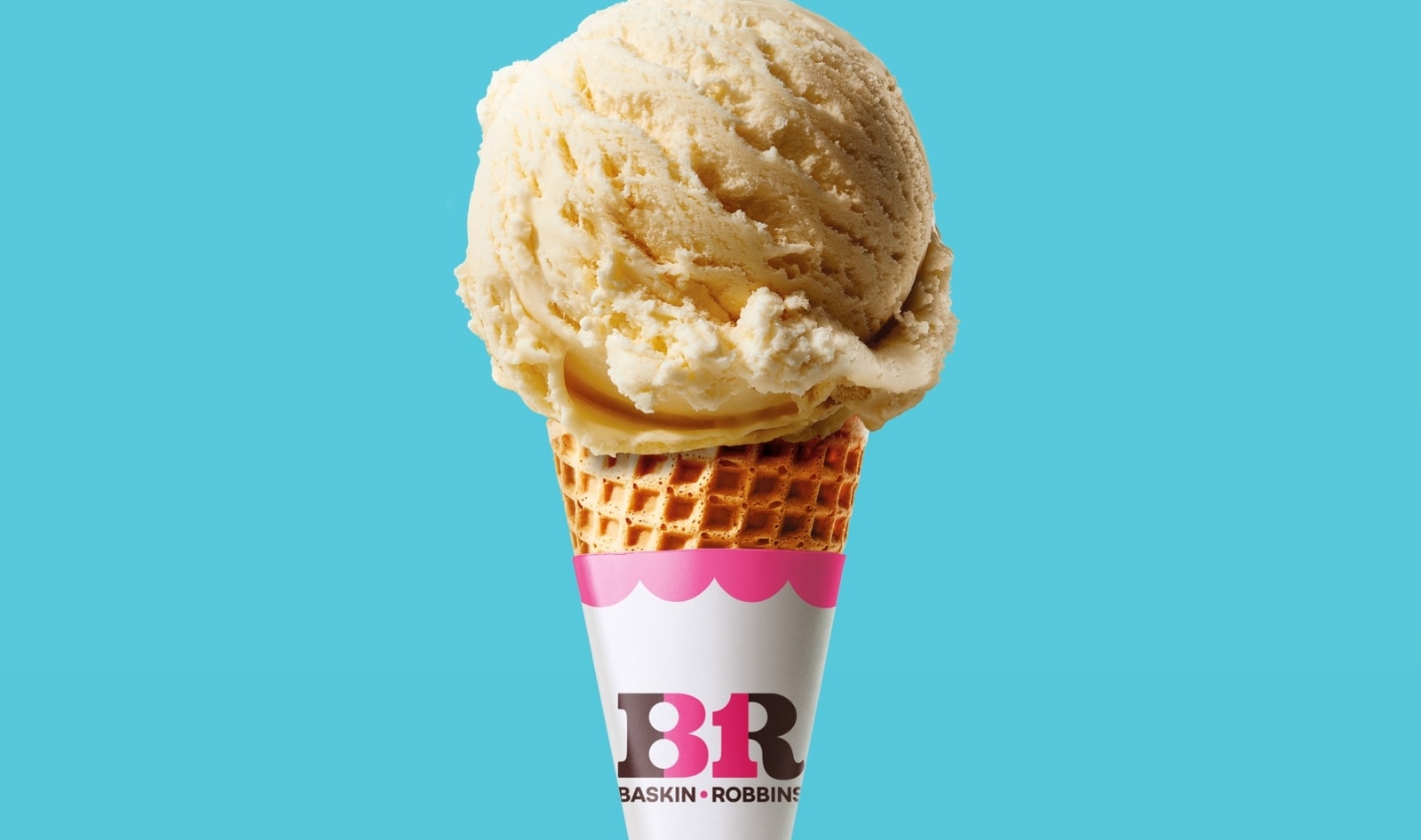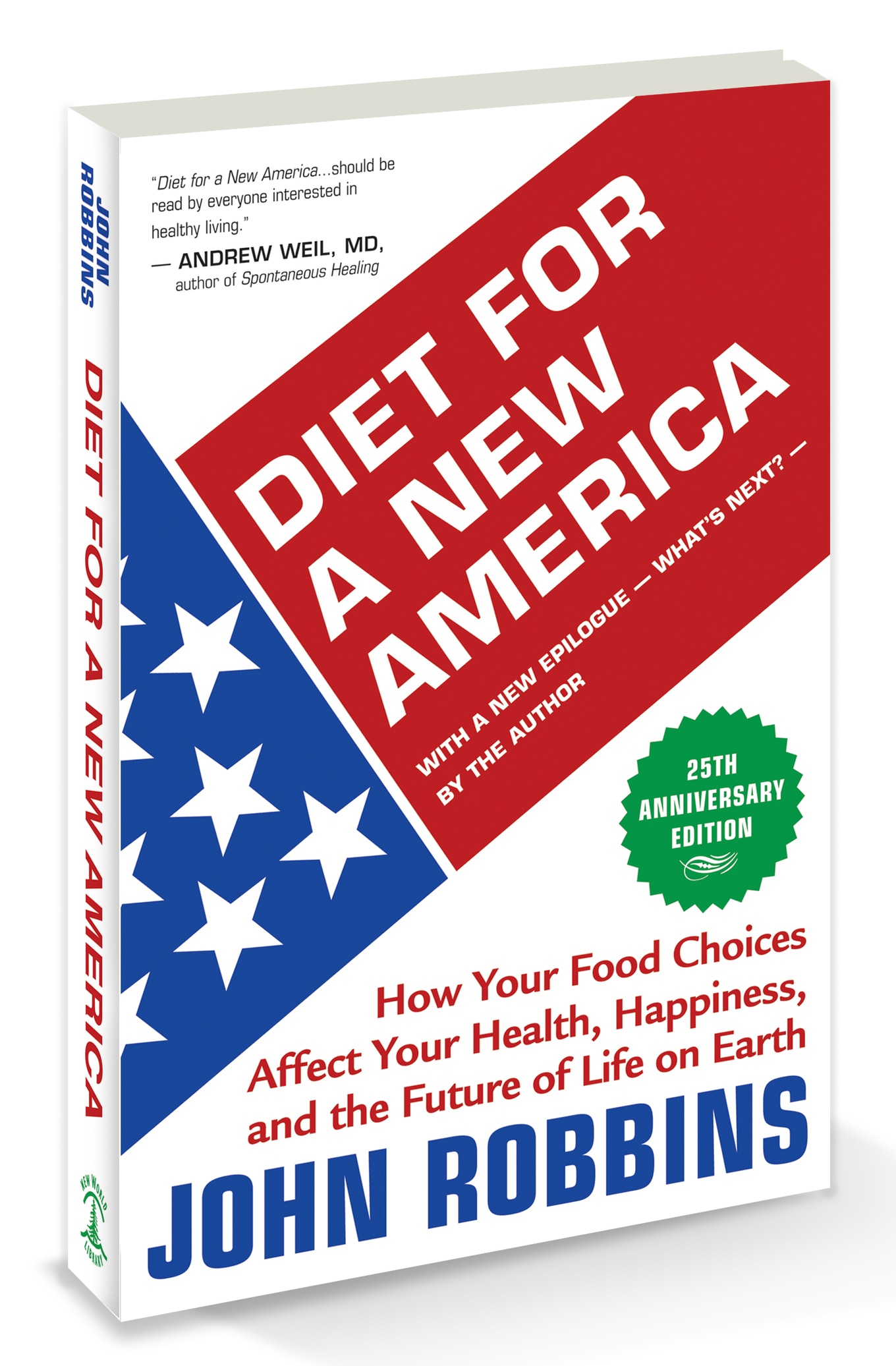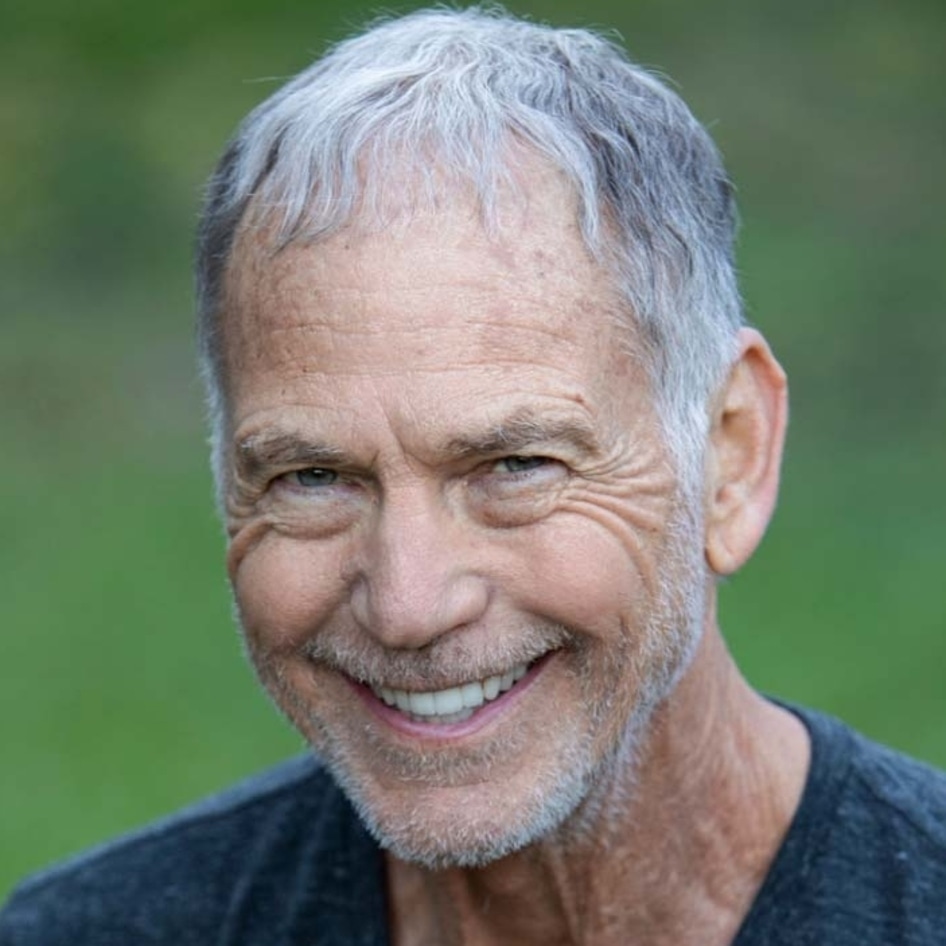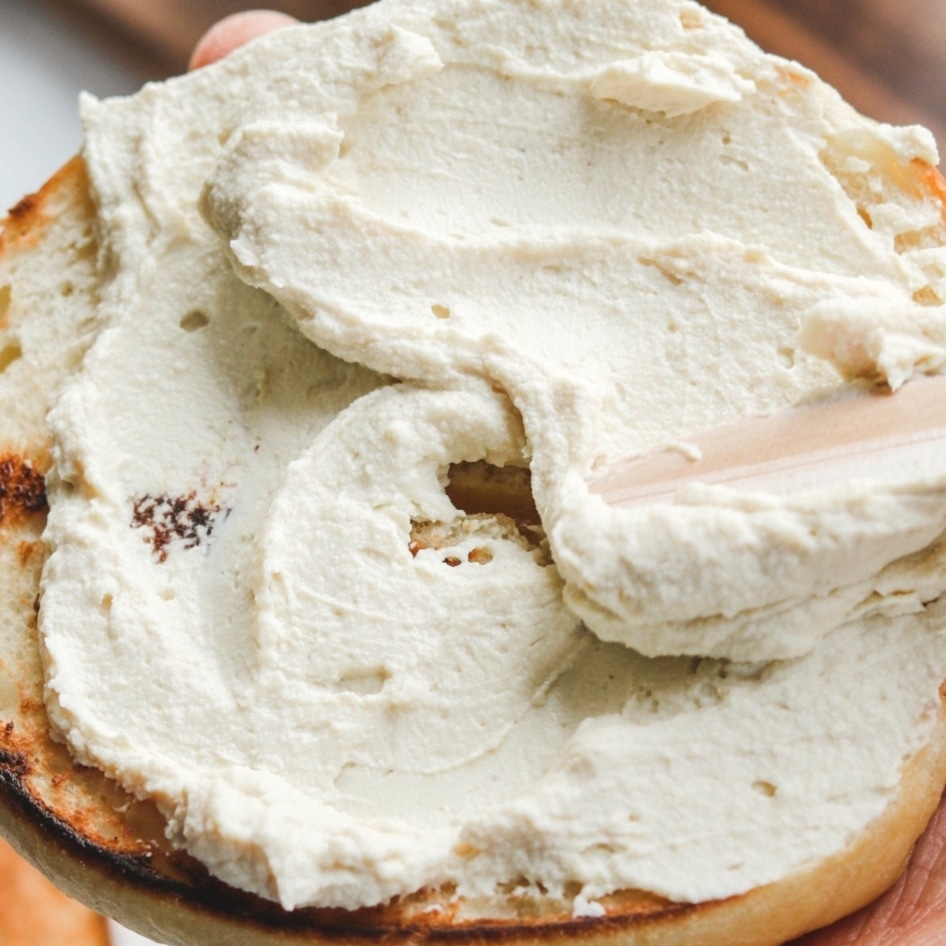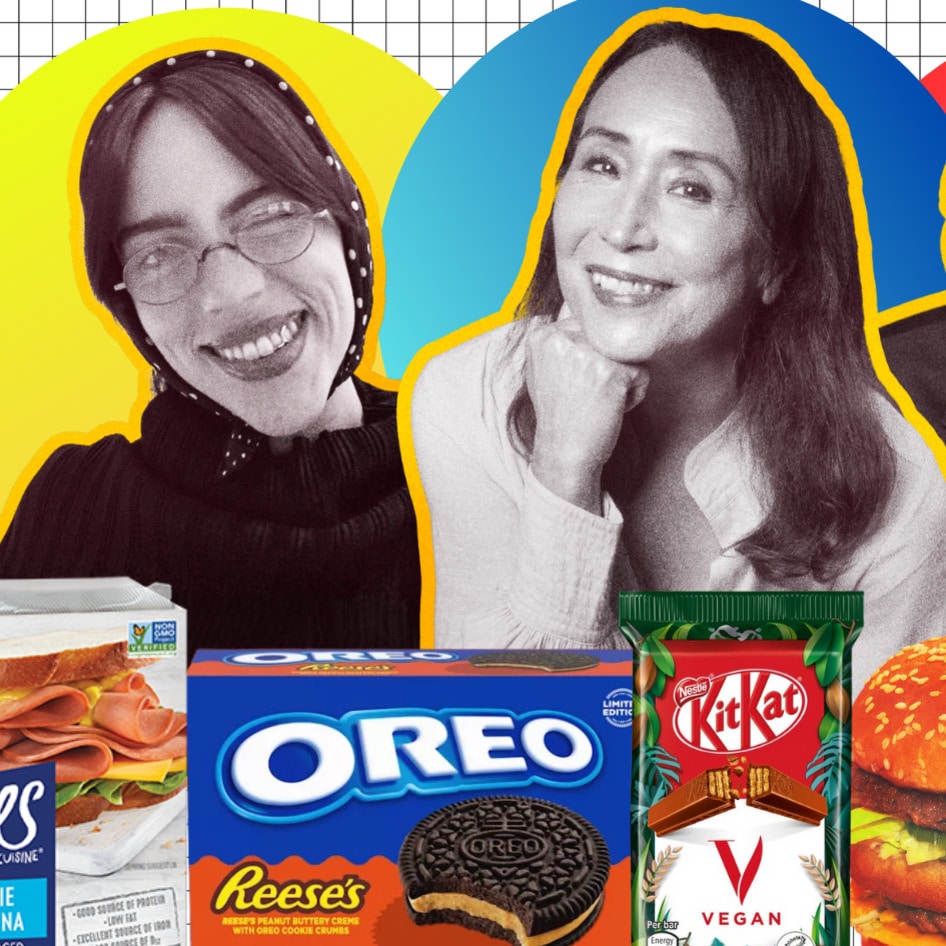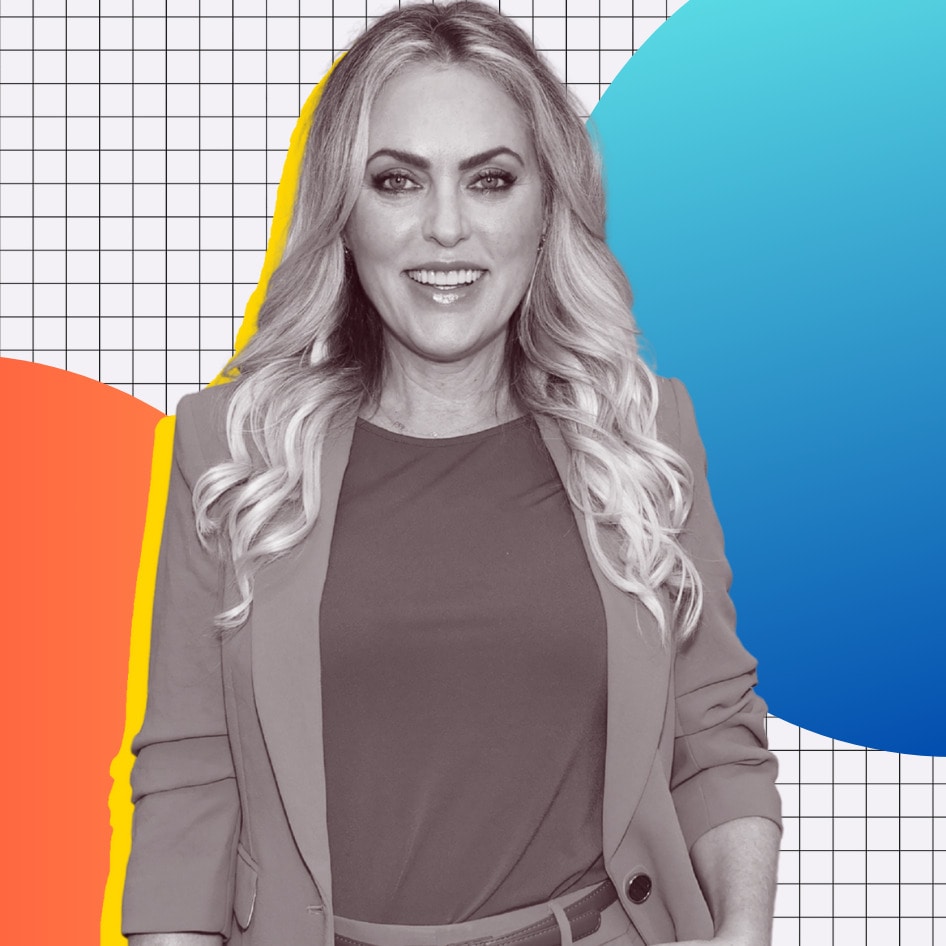Life could have been sweet for John Robbins. The only son of Irvine “Irv” Robbins, co-founder of Baskin-Robbins, he was next in line to assume the family legacy and reign over what is now the world’s largest chain of specialty ice cream shops. But the more he learned, the more uncomfortable he became with the environmental, health, and ethical implications of dairy. So, despite the familial and financial repercussions, Robbins ultimately decided not to pick up the proverbial ice cream scoop.
Baskin-Robbins has plenty of vegan options now, including sorbet and non-dairy coconut milk ice cream. And in 2021, the company became the first major chain to serve vegan oat milk ice cream (which lasted for a limited time). But back in the 1970s, after Robbins graduated from university, dairy was the norm in the ice cream game.
In 2019, we caught up with the heir to the soft serve throne to get the backstory of the ice cream legacy that could have been, and you can find his story below.
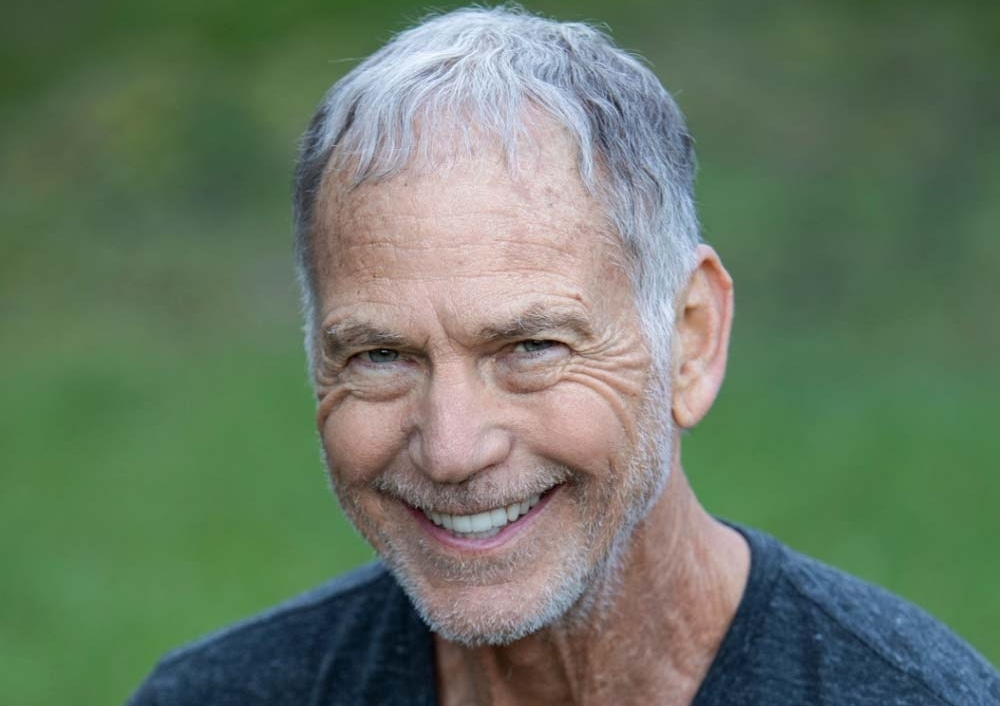 John Robbins
John Robbins
Why John Robbins turned down a career with Baskin-Robbins
On paper, Robbins had a dream childhood. Thanks to the extremely lucrative family business, he literally grew up in a house with an ice cream cone-shaped swimming pool and had access to “a seriously excessive amount of ice cream.” From the outside looking in, there was no doubt, Robbins had it good.
“Most people would think that inventing flavors and eating ice cream would be a fantasy come true for a child and young adult,” he told VegNews. “And there was a lot that I enjoyed.”
But in the end, he found he couldn’t ignore the “health implications of ice cream.” Today, some research suggests that dairy consumption might be linked with skin issues like acne and even a higher risk of some forms of cancer for some people.
It wasn’t just about health for Robbins, he couldn’t ignore the animal welfare issues associated with dairy either. Again, today, research suggests that more than 99 percent of animal products on the shelves come from animals that were raised in industrialized, cramped factory farm conditions.
“The more I learned about the health implications of ice cream, and the more I learned about how the cows were treated, the less enjoyment I took and the more concerned I felt,” he said. “I felt torn.”
He recalls how one part of him was eager to please his father, take over the company, and enjoy the lucrative, solid career that would have offered him. “But on the other hand,” he says, “I felt called to contribute, to be of service.”
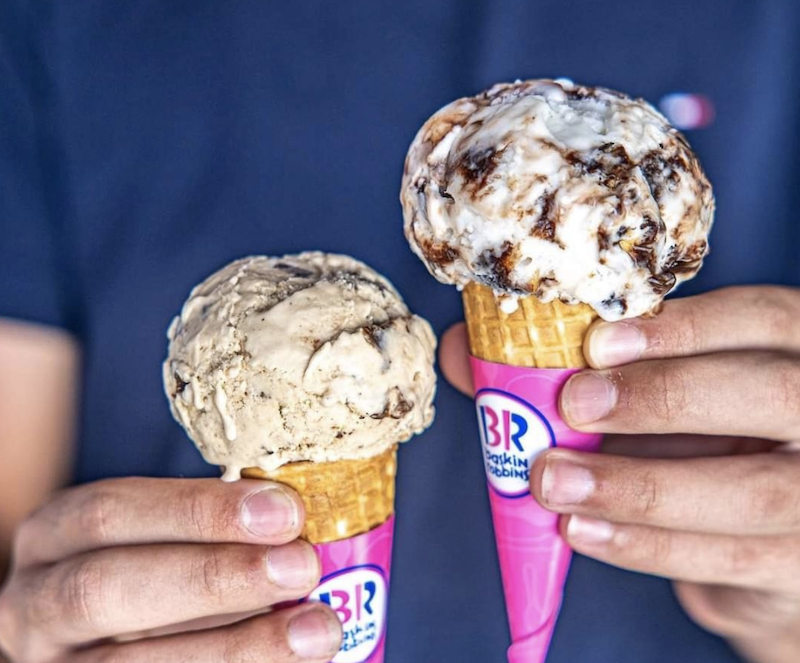 Baskin-Robbins
Baskin-Robbins
Leaving behind the family business
Robbins’ calling, it turns out, was from the wild. He packed up, met his wife, and together they built a one-room cabin on a small island off the Canadian coast where they grew their own food and lived off $500 a year. During this time, they had a son and named him Ocean. Talk about a hard pivot.
“I remember telling my father, ‘Look, Dad, we live in a different world now than the one in which you grew up,’” he recalls. “The environment is degrading badly under the impact of human activities. The gap between the haves and the have-nots is increasing, and the sense of common purpose and shared community is deteriorating. We live under a nuclear shadow, and at any moment the unspeakable could happen.”
“‘Do you see that for me, feeling these things as deeply as I do, inventing a 32nd flavor just wouldn’t be an adequate response for my life?’,” he continued.
His father was less than thrilled. After all, Robbins had a knack for the ice cream business—he even invented one of the company’s most iconic flavors, Jamoca Almond Fudge. In the end, Robbins ended up being ostracized from the family, and the Baskin-Robbins ice cream empire was sold.
Moving forward with no regrets
Robbins regrets nothing. He explained, “My wife, Deo, and I have been married now for 52 years, and we’ve been eating [plant-based] the whole time. Those are two decisions—marrying her, and eating a whole foods, plant-strong diet—that I’ve never regretted for a single moment.”
After years of living this plant-based, meditation-focused, off-the-grid lifestyle, Robbins published his first bestseller—Diet for a New America—in 1987. This seminal piece of work outlines the ethical, environmental, and health implications of animal agriculture, and dairy-based ice cream is part of this global problem.
Despite the book’s direct criticism of the dairy industry—the very same industry that supported his father’s business—it, ironically, might have saved Robbins Senior in the long run. After “Knocking at Death’s door,” as Robbins put it, his father read the book and immediately changed his diet. Robbins Senior ended up living 20 more healthy years.
“Plant-based eating [has] become an unstoppable force. Everyone in the food world is taking notice. And that is very, very good news for all life on this beautiful planet.”
The future of vegan ice cream
While Robbins still adheres to his whole foods, plant-based diet (and has published several other bestsellers surrounding the topic), he does admit to enjoying the occasional vegan ice cream. His favorite, he claims, is anything that comes close to his signature Jamoca Almond Fudge.
When asked about his estranged company’s decision to finally implement vegan options, Robbins said he believes the move was likely motivated more by profit than by compassion.
“I can tell you that the company didn’t make this move because they suddenly decided to be at the forefront of healthful and compassionate eating,” he noted. “They did it because they saw the handwriting on the wall.”
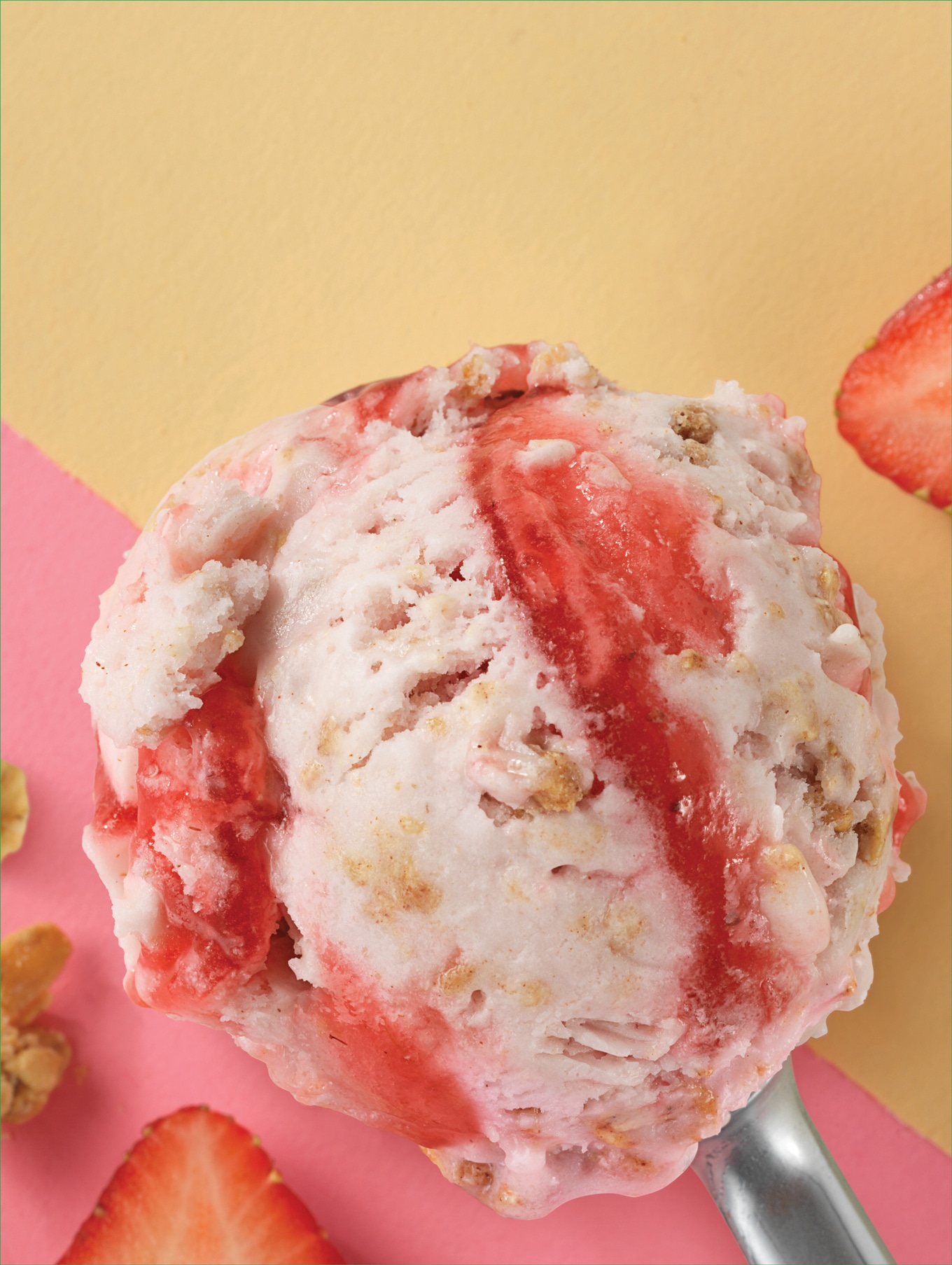 Baskin-Robbins
Baskin-Robbins
The handwriting in question might be the market predictions for the non-dairy industry. By 2028, research suggests the global dairy alternatives market could hit $43.6 billion. But dairy, on the other hand, is on the decline. In fact, between 1997 and 2017, half of the dairy farms in the US closed down. Now, there are less than 28,000 licensed dairy herds in the country.
“Plant-based food is the future,” Robbins continued. “[Baskin-Robbins added vegan options] because they want to stay in business and keep making money, and they see that sales of plant-based foods are skyrocketing.”
Robbins currently manages the Food Revolution Network with his son, Ocean. The program helps others transition to a plant-based lifestyle to support their health and the health of the planet.
For more plant-based stories like this, read:
JUMP TO ... Latest News | Recipes | Guides | Health | Subscribe
Here at VegNews, we live and breathe the plant-based lifestyle, and only recommend products we feel make our lives amazing. Occasionally, articles may include shopping links where we might earn a small commission, but in no way does this effect the editorial integrity of VegNews.

